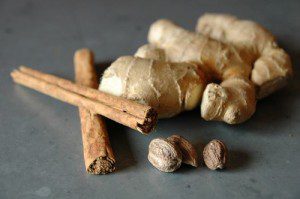By Kathy Azmeh-Scanlan
If springtime in the air has you running for the tissues, you’re not alone. Each year, millions of Americans seek relief from seasonal allergy symptoms. Pollens, molds, grasses and budding tree growth are common culprits, contributing to the classic symptoms of hay fever: itchy, watery eyes; runny nose; sneezing; and sinus congestion with pressure and pain.
With their gentle actions and minimal side effects, botanical remedies are a good option for allergy sufferers. As you explore the options that follow, pay careful attention to the symptoms they help alleviate. Seasonal allergies produce a variety of symptoms; targeting yours specifically is the first step to success with any regimen. And as always, remember that herbal remedies may be incompatible with pregnancy, nursing, pediatric care, and prescription drugs and medical conditions. Consult your doctor about supplement use to ensure compatibility and safety.
[pro_ad_display_adzone id=”110028″]
Natural Remedies for Congestion
Horseradish: The sinus-clearing aroma and sharp flavor of freshly grated horseradish make it useful for alleviating stuffy noses and bronchial congestion. Prepare a broth by steeping several spoonfuls of freshly grated root in a bowl of boiling water or soup stock.
Peppermint: Perhaps the most versatile backyard provision, peppermint imbues a peppery, sweet flavor that indicates the presence of its natural menthols, tannins and bitter principles—together responsible for its ability to ease congestion and improve breathing. Steep fresh or dried peppermint leaves in boiling water for a quick, head-clearing brew.
Natural Remedies for Coughs
Anise Seed: To encourage a more productive cough, prepare an infusion of 1 to 2 teaspoons of bruised anise seeds steeped in 1 cup of boiling water and drink. (Bruise seeds by partially crushing them to release their oils.) You can also add a drop of anise seed essential oil to a cup of peppermint tea, or combine a drop with a spoonful of honey for quick dosing.
Elder Flower: A generous assortment of flavonoids, vitamins (A, B and C), essential oils, sugars and carotenoids contribute to the medicinal action of elderberries and flowers. To benefit from the flowers’ expectorant action, prepare an infusion of fresh elder flowers by steeping a small handful of blossoms in a cup of boiling water, or look for elder-based remedies at health-food stores.
Thyme: The leaves and flowering tops of common kitchen thyme can aid in the treatment of cough, bronchial irritation, shortness of breath and sore throat. Prepare an infusion of 1 to 2 teaspoons dried thyme per cup of boiling water, or look for commercially prepared thyme teas at health food stores.
Natural Remedies for Sore Throats
Cinnamon: The spicy aroma, fresh taste and antimicrobial action of cinnamon provide a delicious way to soothe sore, inflamed throats. Prepare a cinnamon tincture by steeping a handful of bruised cinnamon sticks in a pint of vodka. Shake daily. After about two weeks, strain and decant into a dark bottle for storage. Add a few drops of the tincture to a cup of warm water, which you can sip or gargle.
Ginger: Treat a dry, scratchy throat with ginger tea. Simmer 1 teaspoon of freshly grated root in 1 cup of water for five to 10 minutes. The commercially available dried, powdered ginger works fine, too. Simmer 1 to 2 teaspoons per cup of water until fragrant and spicy. Honey makes a nice addition.
Sage: Sage can be useful to relieve painful, inflamed membranes due to tonsillitis, sore throat or mouth ulcers. To make a mouth rinse, add 1 to 2 teaspoons of dried sage to a cup of water and bring to a gentle boil. Remove from the heat and steep, covered, for 10 to 15 minutes, then strain. Use as a mouth rinse and gargle.
Natural Remedies for Itchy Eyes
Chamomile: To help soothe dry, itchy eyes, place refrigerated, wet chamomile tea bags over closed eyes for 3 to 5 minutes or more. Chamomile contains anti-inflammatory properties that may help relieve symptoms. However, you should avoid chamomile if you are allergic to ragweed.
Stinging Nettle: Stinging nettle may help relieve the itchy eyes and sneezing associated with hay fever. Researchers think this may be due to nettle’s ability to reduce the amount of histamine the body produces in response to an allergen. Some doctors recommend taking stinging nettle before hay fever season starts to help your body deal more effectively with allergens. Look for tea or capsules made from fresh freeze-dried leaves.
Breathe Better
Inhaling healing vapors can help calm irritated mucous membranes and airways. If you’re suffering from dry, congested sinuses, try aromatic steam inhalations. The steam supplies warm moisture to irritated membranes, helping improve drainage and relieve sinus pressure. To prepare, place a liberal pinch of aromatic herbs such as eucalyptus, thyme, pine twigs, peppermint or chamomile in a large pot. Cover the herb with a quart or so of near-boiling water, put a towel over your head, and inhale the vapors that emanate. Breathe for five to 10 minutes (as tolerated), and repeat two or three times daily.
Aromatic rubs are another way to benefit from inhaled vapors. Menthol-containing commercial brands are available, but it’s easy to prepare your own by mixing essential oils into olive oil and beeswax. Experiment with pine, peppermint and eucalyptus oils, or try a combination. Simply heat 4 ounces of olive oil over low heat. Stir in 1 teaspoon of essential oil and combine. Add beeswax shavings (about 2 ounces) to thicken. Pour into ointment jars to set.
About the Author
Kathy Azmeh-Scanlan is a pharmacist in Austin, Texas, who strives to promote wellness in her daily interactions with clients, supporting them in their efforts to become administrators of their own health care. In keeping with this ethic, Kathy pursues freelance writing on topics related to disease avoidance and natural medicine.
Source – naturalhomeandgarden.com
[pro_ad_display_adzone id=”110027″]
Disclaimer: This article is not intended to provide medical advice, diagnosis or treatment. Views expressed here do not necessarily reflect those of Wake Up World or its staff.







